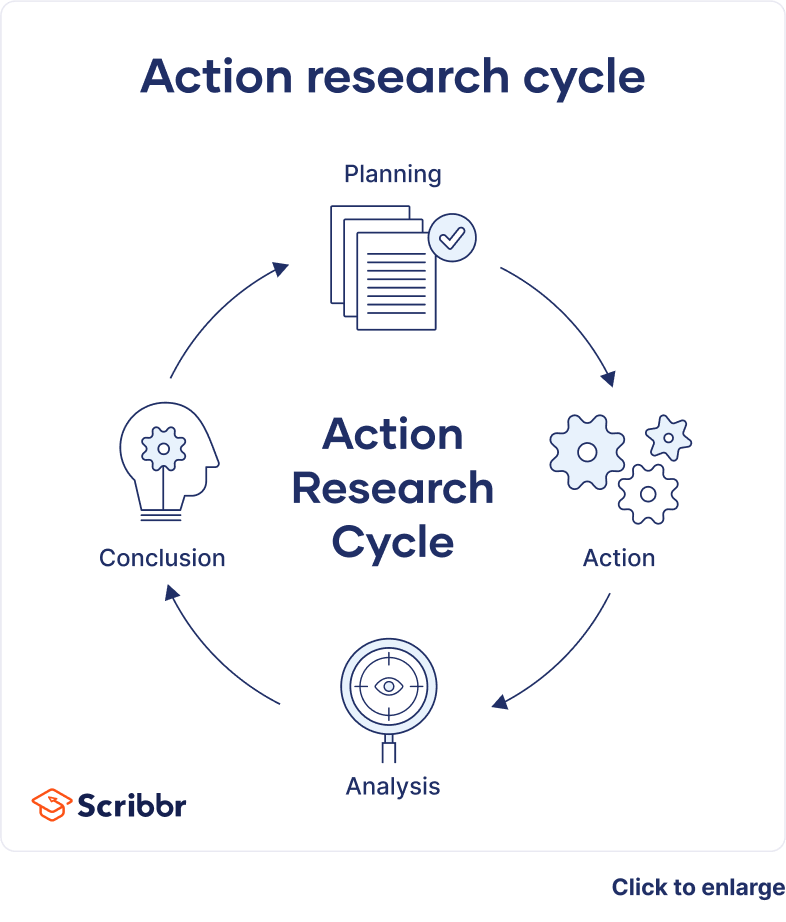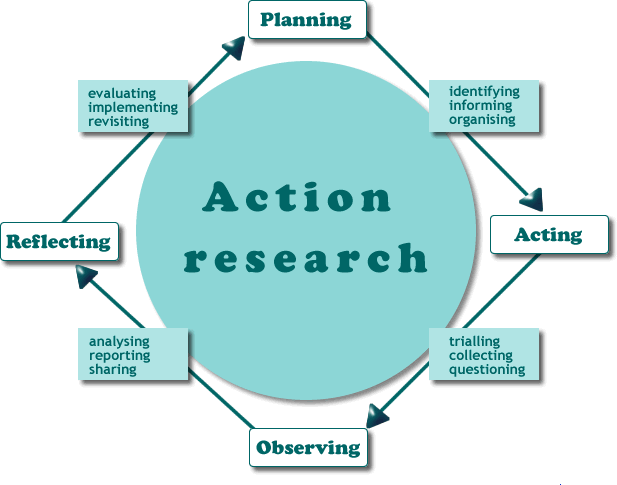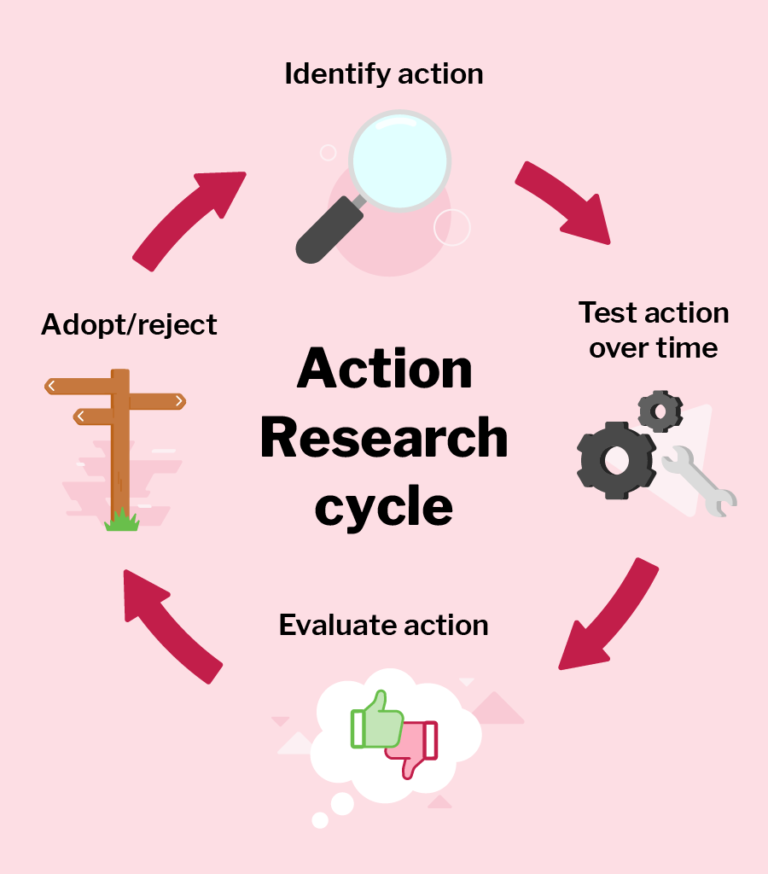Reference




OpenAI's Answer
Action research is a participatory and reflective research methodology often used in social sciences and education. It involves a cyclical process of planning, acting, observing, and reflecting, with the aim of solving specific problems or improving practices within a particular context. This method is characterized by its collaborative nature, where researchers and participants work together to identify issues, develop solutions, and implement changes.
Key Features of Action Research:
- Participatory: Involves collaboration between researchers and participants.
- Reflective: Encourages continuous reflection on the process and outcomes.
- Cyclical Process: Typically follows a cycle of planning, action, observation, and reflection.
- Problem-Solving Focus: Aims to address specific issues or improve practices.
- Context-Specific: Tailored to the unique needs and circumstances of the setting.
Applications:
- Education: Teachers use action research to improve teaching methods and student outcomes.
- Organizations: Used to address workplace challenges and improve processes.
For more detailed information, you can refer to resources like Infed.org and Study.com.
Here is a visual representation of the action research cycle:

Follow Up
Reference




Moonshot's Answer
Action research is a research methodology that is participatory, reflective, and aims to bring about change in a specific context, such as a classroom or an organization. Here are some key points about action research:
-
Process-Oriented: It involves a cyclical process of planning, acting, observing, and reflecting. This iterative process allows for continuous improvement and adaptation based on the outcomes observed.
-
Participatory: Action research is characterized by the involvement of all stakeholders in the research process. This includes those who are affected by the issue being researched and those who will implement the changes.
-
Reflective: It encourages deep reflection on actions and their outcomes, which is crucial for understanding and learning from the research process.
-
Practical and Relevant: The results of action research are intended to be immediately applicable to the situation at hand, providing practical solutions to real-world problems.
-
Improvement of Practice: Often used in educational settings, action research helps teachers and other professionals to evaluate their practices, identify areas for improvement, and enhance their work.
-
Transformative: It seeks to bring about transformative change, not just in the immediate context but also in the broader social structures that influence it.
-
Collaborative: Action research often involves collaboration between researchers and participants to identify problems, develop solutions, and implement changes.
Visual representations of the action research process can be found in various resources, such as this image, which illustrates the cyclical nature of action research, or this image, which provides a clear diagram of the action research cycle.
In summary, action research is a powerful tool for those looking to effect change and improve practices through a collaborative, reflective, and iterative process. It is particularly valuable in educational and organizational contexts where the goal is to solve specific problems and enhance professional practices.
Follow Up
Related
What are the co-productions listed under Universal's live-action/animated films?
How do Joanne Cardsley's actions contribute to her 'devious' characterization?
Which companies are involved in producing the live-action Frosty the Snowman film featuring Jason Mo
What year did the Gosnold - Cuttyhunk Climate Action Network complete their climate action plan?